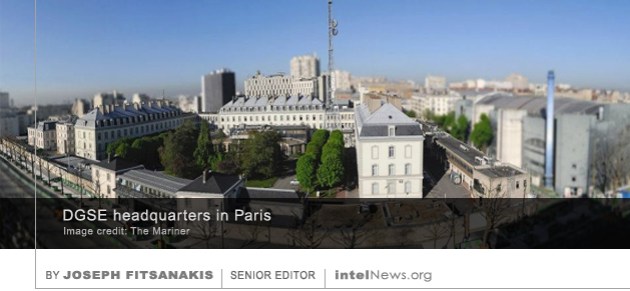Seeking to expand, French spy agency is frustrated with poor quality of job applicants
May 8, 2020 1 Comment
 France’s primary external intelligence agency has expressed frustration with the overall poor quality of job applicants, as it tries to expand its staff by 20 percent in the coming years. The Direction Générale de la Sécurité Extérieure, known as DGSE, is France’s equivalent to the United States’ Central Intelligence Agency and the United Kingdom’s Secret Intelligence Service, or MI6. It is tasked with procuring secret political, military and economic information from foreign targets.
France’s primary external intelligence agency has expressed frustration with the overall poor quality of job applicants, as it tries to expand its staff by 20 percent in the coming years. The Direction Générale de la Sécurité Extérieure, known as DGSE, is France’s equivalent to the United States’ Central Intelligence Agency and the United Kingdom’s Secret Intelligence Service, or MI6. It is tasked with procuring secret political, military and economic information from foreign targets.
During the past decade, the DGSE has nearly doubled the size of its personnel. In 2008, it employed fewer than 4,500 people. By 2019, its staff size had grown to over 7,000, including many thousands of operations officers serving secretly abroad. Last year, the agency announced that it planned to grow its personnel size to 8,500 by 2022. To do so, it launched an unprecedented recruitment campaign, which French security experts described as nothing short of revolutionary. The staunchly reclusive DGSE sent recruiters to job fairs across France —mostly at universities— and began advertising its job vacancies online, primarily on YouTube and LinkedIn.
As a result of its efforts, the agency said that it received 400 applications for 14 positions that were advertised in January. Of those 14 positions, 10 required advanced knowledge and understanding of foreign affairs and geopolitical developments, while two sought candidates with logistical and administrative expertise. The remaining two positions equired fluency in Arabic.
But, according to the British newspaper The Times, the French spy agency struggled to fill the positions. On Thursday the paper cited a DGSE report, which said that the performance of candidates during the selection process “revealed critical shortcomings”. Candidates appeared for interviews severely under-prepared and their level of knowledge, as demonstrated in interviews, was “unacceptable for someone wishing to join the ranks of the DGSE”, said the report. It added that job candidates showed “markedly limited grasp” of global geopolitics, while their knowledge of intelligence work was even more limited. Even minimum requirements, like a résumé free of spelling mistakes were rarely met, it said.
Consequently, and despite the fact that majority of the applicants had graduate degrees, the DGSE struggled to fill the positions, with the process taking much longer than expected. The report said that 12 of the 14 job posts were eventually filled. The remaining two posts —requiring fluency in Arabic— remain unfilled “for want of suitable candidates”, noted The Times.
► Author: Joseph Fitsanakis | Date: 08 May 2020 | Permalink







Looks like a big ask to increase the numbers of DGSE employees so quickly. A related matter would be the likely parallel growth of France’s FBI equivalent General Directorate for Internal Security (DGSI). DGSE and DGSI would seek to recruit the same type of candidates ie. mid to late twenties, Master degrees or equivalent knowledge in International Relations and one or two extra languages. Most sought after languages would be very fluent English and written and spoken Arabic (for the counter-terrorism and counter-insurgency missions).
Off-putting for many prospective DGSE canditates might be DGSE’s rightwing, military past. Such past operations as Operation “Satanic” http://en.wikipedia.org/wiki/Sinking_of_the_Rainbow_Warrior might give prospective candidates of the left-centrist persuasion pause.
A great depiction of one part of the mainly non-diplomatic cover part of the DGSE is “The Bureau” TV series http://en.wikipedia.org/wiki/The_Bureau_(TV_series) . It may be more realistic and certainly a different organizational focus to “The Americans” http://en.wikipedia.org/wiki/The_Americans .